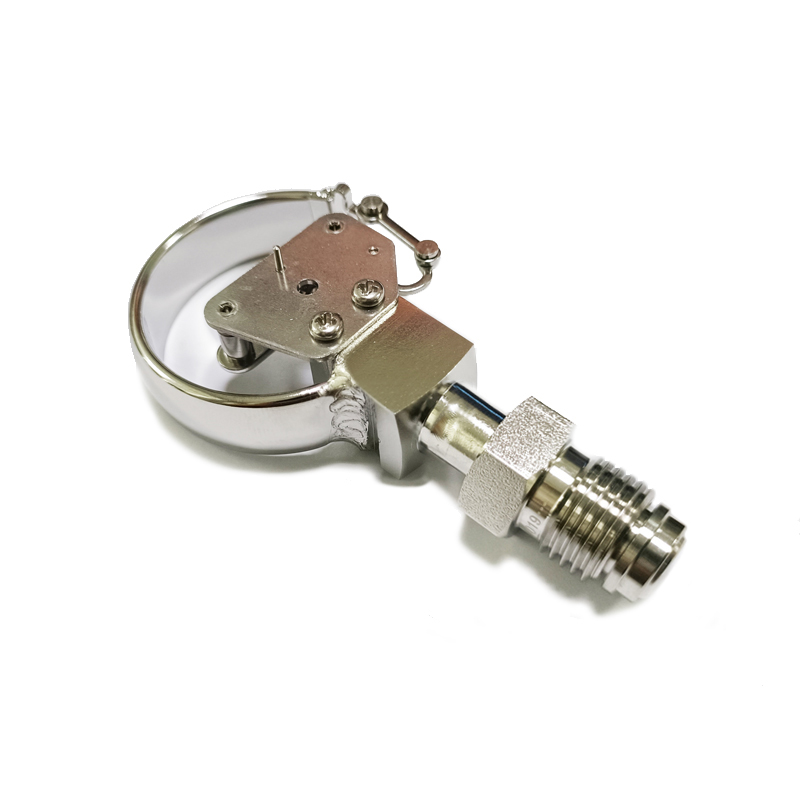
Nov . 07, 2024 21:30 Back to list
Diaphragm Seal Differential Pressure Gauge Supplier for Accurate Measurement Solutions
Understanding Differential Pressure Gauges with Diaphragm Seals
Differential pressure gauges are essential tools in many industrial applications, providing critical measurements that ensure processes operate smoothly and safely. Among the various types of differential pressure gauges, those equipped with diaphragm seals have proven to be particularly reliable and versatile. This article explores the functionality, advantages, applications, and leading manufacturers of differential pressure gauges with diaphragm seals.
What is a Differential Pressure Gauge?
A differential pressure gauge measures the difference in pressure between two points within a system. This measurement is vital in numerous processes, including fluid flow, filtration, and level measurement. By providing insights into pressure variations, these gauges help monitor system performance and detect potential issues before they escalate into serious problems.
The Role of Diaphragm Seals
Diaphragm seals are specialized devices that separate the pressure sensing element of the gauge from the process fluid. This separation is crucial when dealing with corrosive, viscous, or contaminated fluids. The diaphragm, typically made from materials such as stainless steel or other corrosion-resistant substances, deforms under pressure while maintaining the integrity of the measurement system. This setup protects the sensor from harmful substances and ensures accurate readings.
Advantages of Using Diaphragm-Sealed Differential Pressure Gauges
1. Protection Against Corrosion Diaphragm seals provide a barrier against corrosive fluids, thereby extending the lifespan of the measurement devices. This is especially important in industries such as chemical processing, where media can be highly aggressive.
2. Accuracy and Sensitivity The use of a diaphragm can improve the accuracy of pressure readings. Since the gauge is not directly exposed to the process fluid, it minimizes the risk of clogging and sediment buildup, which can affect measurement precision.
3. Adaptability to Viscous Fluids Differential pressure gauges with diaphragm seals can effectively handle viscous fluids that might otherwise impede the operation of standard gauges. This makes them suitable for applications in oil and food processing industries.
4. Reduced Maintenance By protecting the internal components of the gauge, diaphragm seals reduce the frequency of maintenance and calibration, leading to lower operational costs and minimizing downtime.
differential pressure gauge with diaphragm seal manufacturer

Applications
Differential pressure gauges with diaphragm seals are utilized across various industries, including
- Oil and Gas Monitoring pressure differentials in pipelines and pumps to ensure safe operations. - Water Treatment Measuring pressure across filters to determine when cleaning or replacement is necessary. - Pharmaceuticals Ensuring consistent pressure monitoring in drug manufacturing processes. - Food and Beverage Monitoring processes where hygiene and material integrity are paramount.
Choosing a Manufacturer
When selecting a manufacturer for differential pressure gauges with diaphragm seals, it's essential to consider several factors
1. Reputation and Experience Look for manufacturers with a proven track record in producing high-quality pressure measurement instruments.
2. Customization Options Some applications may require tailored solutions. Choose a manufacturer that offers customization in terms of materials, sizes, and specifications.
3. Technical Support A reliable manufacturer should provide comprehensive technical support, including installation assistance and troubleshooting.
4. Compliance and Certification Ensure the products comply with industry standards and regulations, such as ISO or ASME certifications.
5. Warranty and Service Options Good manufacturers offer warranties and service plans that can offer peace of mind regarding reliability and performance.
Conclusion
Differential pressure gauges with diaphragm seals play a crucial role in ensuring the efficiency and safety of various industrial processes. By offering protection against aggressive media, improving measurement accuracy, and reducing maintenance needs, these gauges are indispensable tools across multiple sectors. Choosing a reputable manufacturer with a commitment to quality and customer service will ensure that you invest in the right equipment for your application needs. As industries continue to evolve, these innovative instruments will remain at the forefront of efficient process management.
-
High-Quality Pressure Gauge on Fire Extinguisher - Reliable Water Fire Extinguisher Pressure Gauge Suppliers & Exporters
NewsJul.08,2025
-
High-Quality Water Pressure Differential and Gauge Kit Reliable Manufacturers & Competitive Quotes
NewsJul.08,2025
-
High-Precision Digital Diaphragm Pressure Gauge – Reliable Manufacturer & Competitive Quotes
NewsJul.07,2025
-
Wholesale Diaphragm Pressure Gauge Supplier - Premium Quality & Competitive Price
NewsJul.07,2025
-
Digital Diaphragm Pressure Gauge Reliable & Precise Measurement Top Manufacturers Quotes
NewsJul.06,2025
-
High Accuracy Piston Type Differential Pressure Gauge - Reliable Manufacturers & Competitive Quotes
NewsJul.06,2025
